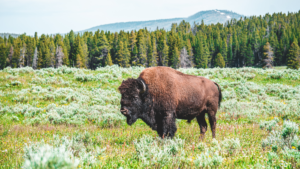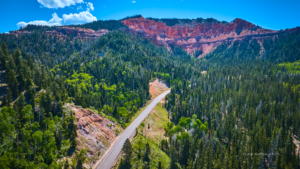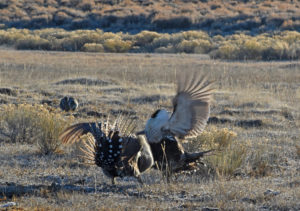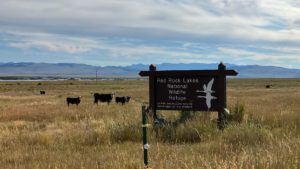WESTERN WATERSHEDS PROJECT
NEWS RELEASE
May 16, 2008
Â
Contacts:Â
Â
Dr. Steven G. Herman: Â 360-894-0751; cell 360-451-0089
Bob Tuck: 509-945-7250
Kristin Ruether: 208-342-7024 ext 208
Jon Marvel: 208-788-2290
Litigation Filed in Thurston County Superior Court To Challenge Livestock Grazing of Quilomene/Whiskey Dick Wildlife Area
Western Watersheds Project (WWP), a west-wide conservation organization, has expanded a lawsuit in Washington State’s Thurston County Superior Court to challenge a permit issued by the Washington Department of Fish and Wildlife (WDFW) permitting commercial livestock grazing of the western portion of the Quilomene/Whiskey Dick Wildlife Area, on an area known as Skookumchuck.Â
Â
The suit challenges the WDFW’s failure to conduct any environmental analysis of the permit as required by the State Environmental Protection Act. The permit was signed on April 22, 2008, without any public comment period, environmental analysis, or disclosure to the public of the environmental effects of allowing grazing on the Wildlife Area.
 Â
Biologist Dr. Steven Herman of Yelm stated:  “We believe WDFW must, at a minimum, conduct an environmental review on this permit under Washington’s State Environmental Protection Act before degrading habitat that could be key to the survival of Washington sage grouse.â€
Â
The Quilomene/Whiskey Dick Wildlife Area contains some of the last remaining areas of intact sagebrush-steppe habitat in Washington State. The area links the last two remaining populations of Washington sage grouse, a species listed as “threatened†under the Washington Endangered Species Act, and contains streams harboring steelhead trout, listed as “threatened†under the federal Endangered Species Act.
Â
The Skookumchuck was acquired by WDFW in 2004 and 2006 via grants from the Washington Wildlife and Recreation Commission. WDFW Director Jeffrey Koenings stated at the time that the Skookumchuck acquisition “will be preserved as critical habitat.†WDFW promised that “[a] long list of shrub steppe obligate and associated species will benefit from this acquisition including sage grouse, sage thrasher, sage sparrow, loggerhead shrike and sagebrush lizard.†Â
Â
In contrast to the promises to manage the area as critical habitat for wildlife, the permitted livestock grazing has already damaged the fragile desert environment by trampling streambanks and native grasses and polluting the streams. Grazing also promotes weed invasion, pollutes water with manure and sediment, and can impact a number of native birds, native fish and rare plants. Recent science on global warming and climate change now also demonstrates that environmental damage caused by cattle on arid lands exacerbates these processes. WDFW’s own biologists have expressed concerns about grazing this acquisition.Â
Â
Biologist Dr. Steven Herman of Yelm observed: “This permit targets an area acquired for sage grouse corridors in imperiled shrubsteppe habitat, contradicting all current ecological science. Cattle destroy shrubsteppe habitat by weakening or removing the native grasses that are the “steppe†half of shrubsteppe, and we’ve already lost over 90 percent of this beautiful and critical landscape in Washington.â€






